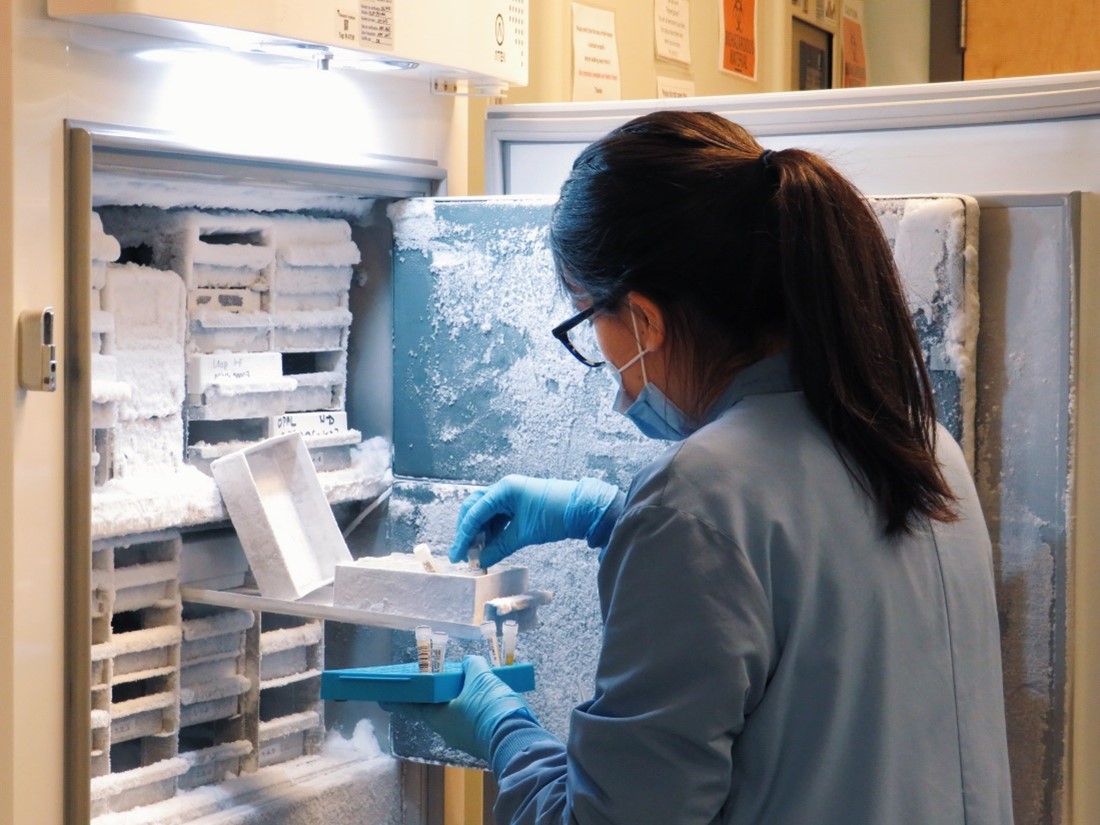
At a research-intensive university like McGill, laboratories play a critical role both in advancing solutions for a sustainable future and making its campuses environmentally responsible places to study and work. In fact, McGill cannot hope to reach its goals of becoming zero-waste by 2035 and achieving carbon neutrality by 2040 without collaboration from the faculty, staff, and students who use these spaces. This is why the University released an updated version of its Sustainable Labs Guide to support lab users interested in adopting more sustainable practices.
“We hope the guide will become a go-to resource for lab users at McGill, whether they are new to sustainability or looking for ideas and support as they take their green lab habits to the next level,” says Sustainability Officer Kimberly John, who joined the Office of Sustainability in 2022 to lead the development of a Sustainable Labs Certification program.
Divided into eight categories ranging from green chemistry to animal research, the Sustainable Labs Guide suggests roughly 75 actions that lab users can implement to make their operations more sustainable. These tips will be continually updated based on feedback from the McGill community and as the University implements more sustainable lab initiatives in areas such as waste management and energy conservation.
“This new version of the Sustainable Labs Guide brings together the most up-to-date information and resources that lab users need to know in order to make their operations more sustainable, without compromising the quality of their research or the safety of their labs,” says George Lazaris, Director of the McGill Department of Buildings and Grounds, one of the units that helped develop the guide.
In addition to reducing the negative environmental impacts of research, the suggested actions and additional resources provided in the Sustainable Labs Guide can help lab users promote health and safety practices, as well as utilize their supplies, equipment, and funding more efficiently.
A collective push toward greener labs
The actions outlined in the updated guide were developed by the Sustainable Labs Working Group, which was established in 2014 to bring together members of the McGill community looking to incorporate sustainability into the operation and design of labs. The working group includes people from the Office of the Vice-Principal of Research and Innovation, Procurement Services, McGill’s Green Labs Initiative, Facilities Management and Ancillary Services, and others.
“This guide is the result of a collaborative effort between key stakeholders at McGill, including staff, students, and researchers,” says Christian Bouchard, who manages McGill’s Hazardous Waste Management unit and co-authored the first edition of the guide back in 2017.
“We want to provide a tool for researchers where they can find several different ways to improve the sustainability of their lab with minimal effort, all in one place, and without distracting from the main goals of scientific research, which is to make breakthrough discoveries using the best tools available and to minimize the factors that affect the consistency of results.”
To help your lab implement more sustainable practices, consult the Sustainable Labs Guide. You can also learn about upcoming workshops and initiatives on the McGill Green Labs Initiative Facebook page.

Great initiative toward a more sustainable and greener environment